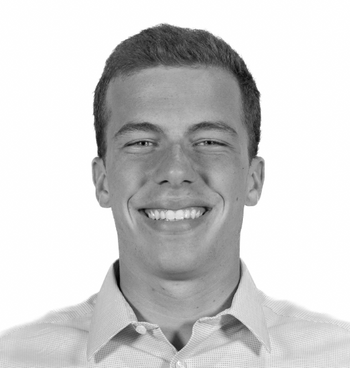Cornell University silent after prof receives ‘Courage in Education’ award
Randy Wayne, an associate professor at the Ivy League institution, received the award from the Steamboat Institute for his 'commitment to advancing free speech and intellectual diversity.'
Cornell’s theme for the 2023 to 2024 academic year is ‘free expression and academic freedom.’
‘I believe that the reason they are not celebrating my award is because Cornell really has no interest in free speech,’ Wayne told Campus Reform.
Despite its official ‘Freedom of Expression’ theme for the 2023 to 2024 academic year, Cornell University has remained silent after its professor won a “Courage in Education” Award in August for his commitment to advancing free speech and intellectual diversity at the Ivy League school.
“I believe that the reason they are not celebrating my award is because Cornell really has no interest in free speech, which leads to critical thinking, and which results to education, as opposed to indoctrination,” Randy Wayne, an associate professor at Cornell’s School of Integrated Plant Sciences, told Campus Reform.
The Steamboat Institute gave Wayne the award, commending his opposition to Diversity, Equity, and Inclusion (DEI) and his help spearheading a debate sponsored by Steamboat Institute about energy and climate change at the university in March. Cornell had tried to stop attendance at the debate, Jennifer Schubert-Akin, the CEO of Steamboat Institute, recounted while introducing Wayne to accept his award in Beaver Creek, CO.
Cornell announced in April the theme for the 2023 to 2024 academic year would be free expression and academic freedom. Martha Pollack, the president of the Ivy League school, said in August that Cornell would uphold both Diversity, Equity and Inclusion (DEI) and free expression, even though the priorities are at odds with each other.
“In my opinion, the purpose of Cornell, under President Pollack, is to be an institution where students can live in fear of speaking their mind, and either remain silent or go along until they graduate,” Wayne told Campus Reform. “The result of this business model is to produce students for whom the distinction between fact and fiction (i.e., the reality of experience) and the distinction between true and false (i.e., the standards of thought) no longer exists.”
Wayne referenced political theorist Hannah Arendt, who said this kind of indoctrination “creates people who are the ideal subjects of totalitarian rule.”
In his acceptance speech, Wayne said he feels that his activism is not courageous but rather a responsibility to champion free speech and civilized debate and discourse, then likened his attitude to a clip from The Three Stooges. One of the stooges, Curly, does not move when Moe and Larry take a step back when asked to volunteer to serve “a dangerous mission.” This creates the illusion of Curly’s (and Wayne’s) own bravery.
But he did say it’s understandable for professors to “hide under their desks” and self-censor because they may not be invited to the “cool parties” and their kids may not be able to attend Cornell.
“The words ‘diversity,’ ‘equity,’ ‘inclusion,’ ‘justice’ have no meaning, no definition,” Wayne said. “Woke speech is not a method of communication since communication requires using words that have shared meanings. When the words of a language have no meanings, yet the use is compelled, and the misuse is punished, professors worry that if they say the wrong thing or do not use the words correctly in grand proposals and course syllabi, they will be called ‘racist,’ ‘homophobic,’ or ‘transphobic,’ and their careers will come to an end.”
Campus Reform contacted Pollack and the Steamboat Institute for comment. This article will be updated accordingly.

